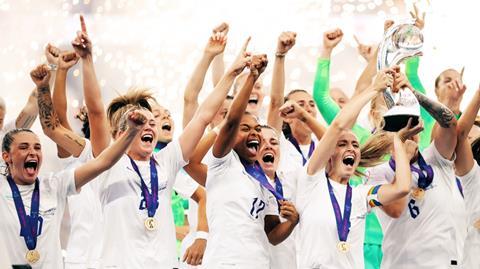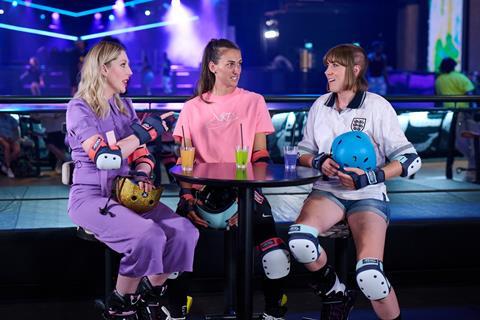Yoni Weisberg, director at Chief TV, believes it can go even further show diversity

We are in a new era of football-related content. Long gone are the days when the face of football was a hoard of aggy young white lads down the pub, the landscape of football and the content that reflects it is now more inclusive than ever - but the work isn’t over.
When you look at how football is presented, many great strides have been made in making the landscape of the world’s favourite sport more inclusive than ever. We see more diverse voices and faces in the frame of every project.
As we’ve rocketed through the first two decades of the 21st century, we’ve seen the content industry around our beloved football eschew the insular and exclusionary tendencies of a bygone era. Especially in the UK, the 90s saw us focus on hyper-masculinity within football culture. Fantasy Football League and Soccer AM are perhaps the most notable examples of this, but they were just a reflection of how we as an audience, connected to the players on the pitch. The England men’s team of Euro 96 were covered more like a rock and roll band on tour during that iconic tournament, now mostly remembered for Gareth Southgate’s missed penalty. As football in this country grew to be the most popular league in the world it was only natural that the growing multiculturalism on the pitch would filter through into the mainstream culture downstream of it.
Thankfully we have seen a growing catalogue of content which humanises the players we idolise, and allows us to relate to them more and cheer on the person as much as we do the name on the back of the shirt. We’ve seen this become particularly significant for England’s women’s squad in time for the current World Cup as we head towards Sunday’s final with the Lionesses in the top 2.
We’ve seen documentaries and fantastic programmes across the major terrestrial and VOD channels in the UK about it, like Disney’s Matildas: The World At Our Feet about the Australian team as they prepare to host the 2023 Cup on their home turf. There’s the BBC’s England’s Lionesses: Inside the Pride and The Lionesses Champions of Europe docs that peel back the curtain on the multi-billion-pound beautiful game. There was even the Lionesses’ special episode of A League Of Their Own Special review for Sky.

It is often difficult for audiences to see the difference between the chicken and the egg regarding diversity and inclusivity. Online audiences especially seem to be dominated by voices who cry tokenism or “woke” culture when they see female pundits, hosts and commentators for content related to the men’s game, or even the sheer fact that the WSL now gets decent airtime on our major channels. Still, the truth is that wider audiences WANT to see a product that reflects who they are.
Broadcasters and brands are not often the ones who will instigate change, but audiences will push them to do better. I applaud the wider mainstream audience for demanding better representation, especially in the afterglow of the Lionesses’ regularly stellar showings at other major tournaments. Working with Ian Wright on a project recently, he expressed his love of the women’s game by telling me that he felt it was football full of pure joy removed from the constant stress and anxiety that men’s football often carries with it. And the 2023 Women’s World Cup is a fantastic example of that – as a football fan I’ve taken (almost) as much joy watching the Matildas’ fantastic matches as I have seeing England on the march yet again.
But ultimately, football fans are fickle - the stars of today’s game, both men and women and especially those from BAME backgrounds, are only ever a slightly poor performance or tumultuous moment away from being swarmed by vitriolic, racist, and misogynist hate from all sides. It’s our responsibility as content creators of all kinds to continue to bring to light these shameful moments whilst championing the strength of character many within the game have and not allow the loud negative voices to shroud the positive direction of travel football and the plethora of content generated from it has had in the last 20+ years.
It’s been my pleasure to be involved in some way in the BBC coverage of the Premier League, Euro 2020, WSL and the Women’s World Cup, but it’s been just as fulfilling to see how football culture has become more open and inclusive than ever before. We’ve come a long way, but there’s still a long way to go.

Yoni Weisberg is director at Chief TV.




No comments yet